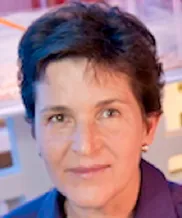
Collective Work and Play in Ant Colonies
Deborah M Gordon, Collective Work and Play in Ant Colonies. Ants are an amazingly diverse group of more than 14,000 species that live in every conceivable habitat on earth. Like many distributed systems, both natural and engineered, ant colonies operate without any central control. No ant can assess what needs to be done. Each ant responds to its interactions with other ants nearby and in the aggregate, these dynamical networks of interaction regulate colony behavior and provide a filter to screen out enemies. My work investigates how ants, over 130 million years of evolution, have come up with diverse solutions to diverse ecological challenges. For harvester ants foraging in the desert, in harsh but stable conditions, the problem is to reduce operating costs and so they regulate traffic to food supply. In the tropical forest, with rapidly changing conditions and many competing species, turtle ant colonies use interactions at temporary nest sites to regulate the shape and stability of the network of trails through the trees. The Argentine ants, frequent visitors to kitchens around here, have perfected the use of temporary, local trail systems, and this may account for their success as worldwide invaders. Ants have evolved many distributed algorithms for working together, probably including some that we havent’ thought of yet.
Deborah M. Gordon is a Professor in the Department of Biology at Stanford University. She studies how colonies work without central control using networks of simple interactions, and how these networks evolve in relation to changing environments. Her work extends to analogies with other biological systems and collaborations with engineers and computer scientists, such as the "Anternet", comparing the regulation of foraging in desert harvester ants to the protocol used to regulate data traffic in the internet. Her projects include a long-term study of a population of harvester ant colonies in Arizona, studies of the invasive Argentine ant in northern California, and arboreal species in tropical forests in Central America. She received her PhD from Duke University, then joined the Harvard Society of Fellows, and did postdoctoral research at Oxford and the University of London. Awards include a Guggenheim Fellowship and the Gores Teaching Award from Stanford. She is the author of two books, Ant Encounters (Primers in Complex Systems, Princeton Univ Press) and Ants at Work (Norton), and recent talks include TED 2014.
